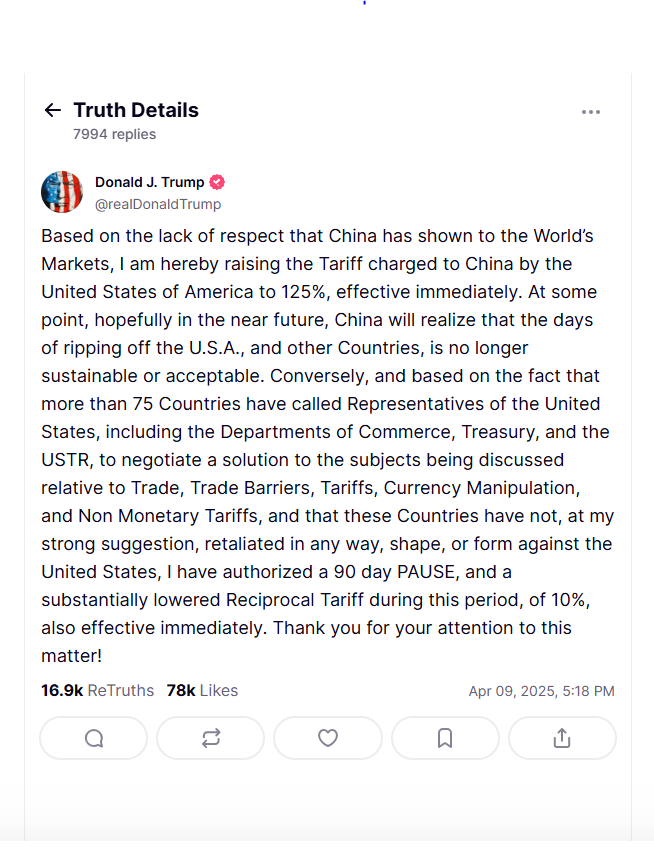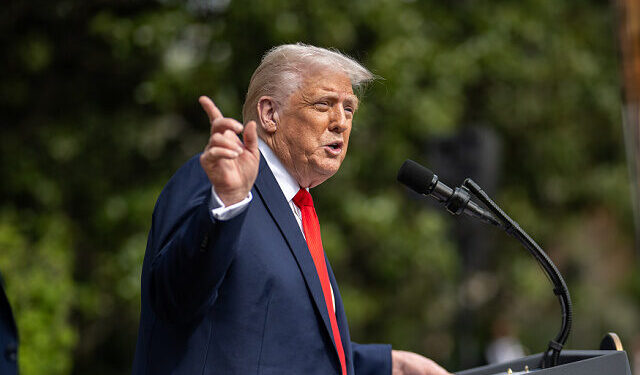President Donald Trump is once again making it crystal clear—America isn’t going to play second fiddle to China when it comes to trade. In a bold statement delivered by White House Press Secretary Karoline Leavitt on Tuesday, Trump made it known that the U.S. holds the cards in the ongoing economic showdown.
“The ball is in China’s court,” Trump said in the statement. “China needs to make a deal with us. We don’t have to make a deal with them. There’s no difference between China and any other country, except they are much larger and China wants what we have — what every country wants, what we have: The American consumer.”
Leavitt emphasized the message during the press briefing, adding:
“Or to put another way, they need our money,” she continued. “So the president, again, has made it quite clear that he’s open to a deal with China. China needs to make a deal with the United States of America.”
This comes just days after Trump declared April 10th “Liberation Day” for American trade, signaling the start of a new era of economic fairness. In that announcement, he dropped the hammer on China’s long-standing abuse of global trade systems:
“Based on the lack of respect that China has shown to the World’s Markets, I am hereby raising the Tariff charged to China by the United States of America to 125%, effective immediately,” Trump posted on Truth Social last Wednesday.
But Trump didn’t just call out China—he offered an olive branch to countries that have shown a willingness to negotiate in good faith. Those who haven’t retaliated were given a 90-day pause and a “substantially lowered Reciprocal Tariff during this period,” also taking effect immediately.
This strategic move is classic Trump—firm, fair, and focused on results.
“At some point, hopefully in the near future, China will realize that the days of ripping off the U.S.A., and other Countries, is no longer sustainable or acceptable,” Trump added.
The Chinese Communist Party, clearly rattled, responded by raising their own tariffs on U.S. goods to 125%. It’s a clear tit-for-tat move, but one that further underscores Trump’s point—China is under pressure.
For decades, China has taken advantage of U.S. trade policies, exploiting our markets while blocking our goods. American workers, farmers, and manufacturers have paid the price. President Trump is determined to end that imbalance once and for all—and he’s not backing down.
What’s changed? For starters, the American economy is no longer dependent on China’s cheap labor and mass production. Trump has spent the last several years bringing manufacturing back home, investing in American workers, and cutting red tape to allow industries to flourish here in the U.S.
The truth is simple: we don’t need China nearly as much as they need us.
The American consumer is the envy of the world. That’s why China wants access to our markets. But Trump is flipping the script—making it clear that access to the U.S. economy must come on our terms, not theirs.
The Trump administration’s new Reciprocal Tariff Doctrine flips globalism on its head. Instead of allowing the U.S. to be exploited under so-called “free trade” deals that are anything but free, Trump is demanding balance. If other countries tax our goods, we’ll do the same to theirs. If they play fair, they’ll be rewarded. If not, they’ll face the consequences.

This isn’t about isolationism—it’s about fairness. It’s about standing up for American jobs, American industries, and the American way of life.
And as always, President Trump is putting America First.




















